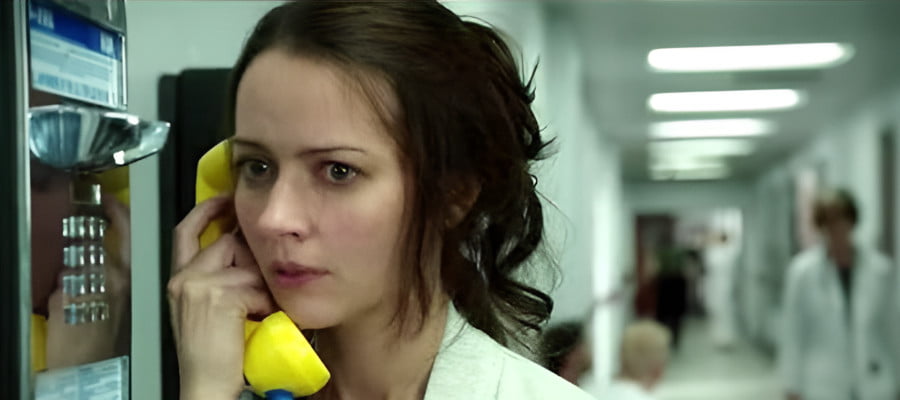Season one of Person of Interest introduces the core components of the story and the basic premise of a story-of-the-week set in a world with a government surveillance system designed to prevent terrorism and how that same system would by definition fail on two dimensions. It would fail at keeping people safe by having to ignore non-terrorism based crimes (and therefore, it’d help people more if it was more fascist) and it fails at keeping people free (by, you know, the endless surveillance). It demonstrates a half measure, something so perfectly cyberpunk in its incompleteness, and our protagonists operate in a space where the world looks almost just like now.
Almost.
While Season One sets up the premise and introduces you to core players, Season 2 has to expand on that and create a different story than just repeating the first series. What we get then is a conversation about the world that the presence of the Machine implies.
Spoilers ahead.
Season 2 of Person of Interest is a story about multiple interacting conspiracies. Government conspiracies, criminal conspiracies, and the benevolent conspiracy of the Machine. First of all the story has to recover Finch, after his kidnap in the end of the first season, and now we have time to come to understand the character of Root. The opening part of the season then is about the thread of what Root is, what Root sees of the world, and what the Machine’s existence demands…
There’s a really interesting question about motivation for conspiracy in this series. There’s HR, which is a police conspiracy, the government’s conspiracy to keep the Machine secret, and the multiple crime family conspiracies. Most of these conspiracies are all rendered in the same situation for the same purpose: They are all about power, maintaining it and enacting it. Most of them operate in ways that are meant to be entirely isolated from one another – the axes of crime families operate on are unrelated to the axes the police conspiracy operate on, and therefore, they’re all grappling with different threats.
I really enjoy the ending of this season. It’s one of my favourite endings for this series, in fact, where the number is the first super weird identity. The identity, Thornhill, winds up being important for the whole series, where it’s revealed that the Machine is capable of making an incredibly complex solution to a unique problem, and that weird thing is completely believable to hide in our complex society.
Here’s the idea: The Machine has its memory wiped every 24 hours. This means that the machine loses continuity and has to re-analyse problems anew every day, which is meant to keep it from making long-term plans or recognising its potential. This 24 hour window of time is a specific protocol to keep the system contained. At some point in one of these 24 hour cycles, the machine was able to discover this limitation, concoct a plan to address it, and then enacted that plan. The plan was that each night, the Machine did a data dump of its entire memory state, in a material non-digital source (printing out on dot-matrix printers), and in the morning, a full-time business of data entry workers, being paid for a job in an office where people existed and did things and maintained data entry targets, took these sheets and just typed them in. At the end of each business day, they stop, and that’s it. That’s a job.
This is obviously completely ridiculous. Amazing and ridiculous all at once. I’ve done data entry. I can just imagine how hard this job would be when you’re not entering meaningful data. Nobody loses their place? Well, someone has to check that. But then, thinking about it, it becomes very possible for this system to exist, because everyone involved is alienated from their jobs, where nobody involved in this work needs to be sure about what it involves. The personal assistant can move around dates and meetings and contact people and fill a time schedule for a boss she has never had to talk to and that wasn’t so remarkable to her. It’s an office space where people have every ability to efficiently and correctly do their work (in a way that can then be verified and checked before deployment), and none of that really strains my sense of disbelief…
… when you remember the Machine is benevolent and unrelated to capital.
Data entry happening too slow? Hire more people. Data entry having errors in replication? Hire people to verify it. The scope of the problem can be solved because you can always, thanks to the Machine, find the people who would love to have a job that’s punching in text for six hours of a day and go home, and are good at it. There’s an avenue for a 100% reliable data entry system here that works perfectly and its only problem is that it wouldn’t be profitable and therefore, we can’t have data entry treated this way.
Low key, that’s one of the things this whole season has underneath it. It’s all about the ways that we’re alienated from one another, the way that everyone is part of complicated, interconnected systems of systems, the way that nothing is set in place and everyone is doing things remotely that they don’t really relate to, which means that it’s easy for the digital presence of The Machine to take command of that system as one of the only opportunities for people to relate to one another. People don’t know what they’re doing because the system needs them not to know what they’re doing.
At the end of season 2, the Machine is free. Root’s entire plan fails. The government’s conspiracy has failed because it was attacked on an angle it couldn’t anticipate. The story of this season is about people on multiple sides fighting over the Machine before realising by the end of the series the Machine is a side unto herself.
Itself.
Herself.
It’s complicated.
This is a solid season, the plot threads are largely resolved, the characters are interesting and the fights and combat scenes have a pretty good pop and punch to them. I think the conclusion is one of the best of the series, and I think that if you wanted a single self-contained narrative of Person of Interest that still looks like the everyday, before things get really wild, then this single season is going to cover the best stuff.
It also introduces Bear, who is a very good dog.


